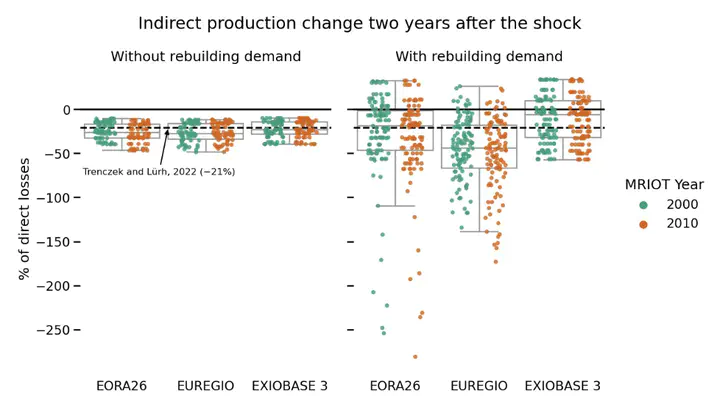Robustness of the Evaluation of Indirect Costs of Natural Disasters: Example of the ARIO Model

Abstract
Given the interconnectedness of economies and the prevalence of just-in-time production processes, even small interruptions to production caused by natural disasters can lead to great indirect economic impacts. A substantial body of literature on this subject exists, notably with the help of input-output analysis, CGE and agent-based models. However, such models rely on parameters and data which are often unobserved empirically or estimated with wide margins of uncertainty. The reliability of these models is therefore difficult to assess. Here, taking the example of the July 2021 floods in Germany, we analyze to what extent the results of the ARIO model are robust to input data and parameter choices. The ARIO model is a widely used model in the literature, and has laid theoretical foundations for several other models. We conduct a sensitivity analysis by varying its key parameters, as well as the multi-regional input output tables which it uses as its main input data. For this, we develop a new resource-efficient Python implementation of the ARIO model, which enables a large number of simulations to be run. Our results show that the choice of the data source and parameters indeed heavily influences the outputs of the model. To ensure the robustness of their results, future studies on indirect economic impacts should incorporate several scenarios and employ data from various sources.